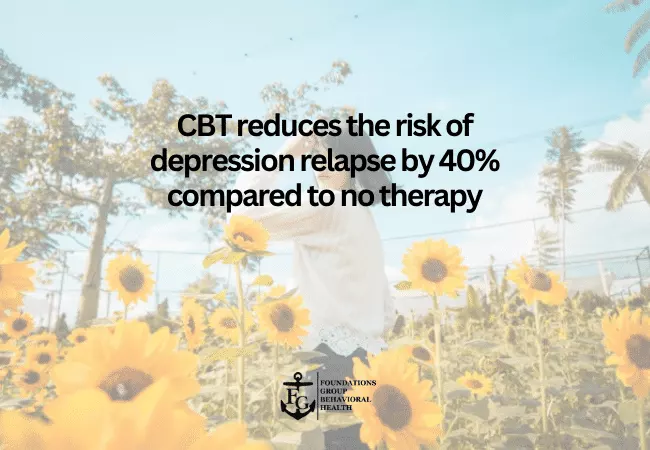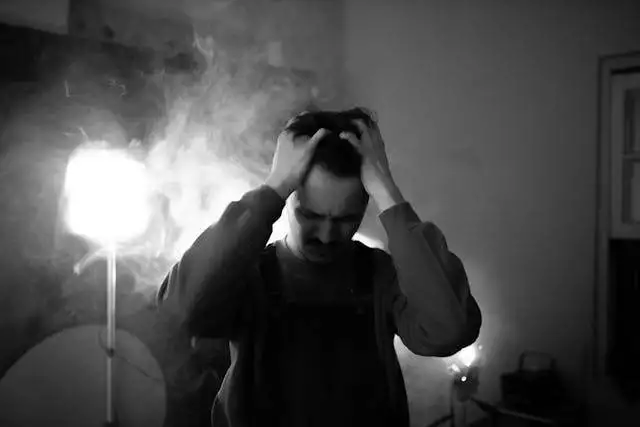Depression is a pervasive mental health condition that affects millions of people globally, often leading to profound emotional, physical, and social challenges. While medication is commonly used in treatment, psychotherapy approaches like Cognitive Behavioral Therapy (CBT) have proven to be equally effective for many individuals. CBT helps individuals recognize and modify unhelpful thought patterns and behaviors that contribute to their depressive symptoms.
This detailed guide explores the role of CBT in managing depression, its integration into comprehensive mental health programs, and how a Behavioral Health Treatment Center in Massachusetts can provide holistic care for lasting recovery.
What Is Cognitive Behavioral Therapy (CBT)?
CBT is a structured, evidence-based approach to therapy that focuses on identifying and changing negative thought patterns and behaviors contributing to emotional distress.
How CBT Works
CBT is based on the premise that our thoughts, feelings, and behaviors are interconnected. Depression often creates a cycle of negative thinking, emotional pain, and inactivity. CBT helps individuals break this cycle by:
- Identifying Negative Thoughts: Recognizing patterns of distorted thinking, such as catastrophizing or all-or-nothing thinking.
- Challenging Unhelpful Beliefs: Analyzing and replacing negative thoughts with realistic, balanced perspectives.
- Promoting Positive Actions: Encouraging engagement in rewarding activities to counteract avoidance and inactivity.
CBT Techniques for Depression
- Cognitive Restructuring: Helps individuals examine the validity of their negative thoughts and replace them with constructive alternatives.
- Behavioral Activation: Encourages participation in activities that bring joy or accomplishment, helping to counteract withdrawal and apathy.
- Thought Journaling: A tool for tracking and analyzing negative thought patterns and their impact on mood and behavior.
- Exposure Therapy: For individuals with co-occurring anxiety, CBT may include gradual exposure to feared situations to reduce avoidance behaviors.
Why Is CBT Effective for Depression?
CBT is recognized as one of the most effective treatments for depression, with research demonstrating its success in both short- and long-term symptom reduction.
Key Benefits of CBT:
- Evidence-Based: Studies show that CBT is as effective as antidepressants for mild to moderate depression and enhances outcomes when combined with medication for severe cases.
- Empowers Self-Management: CBT teaches individuals practical skills to manage their symptoms, reducing reliance on long-term therapy or medication.
- Prevents Relapse: The tools learned during CBT sessions equip individuals to recognize early warning signs and prevent future episodes of depression.
CBT in Comprehensive Care
CBT is particularly effective when integrated into broader mental health programs, such as Psychiatric Day Treatment or Outpatient Mental Health Programs, where it complements other therapeutic approaches like group therapy, mindfulness, and medication management.
CBT and Co-Occurring Disorders
Depression often co-occurs with other mental health conditions, such as anxiety, PTSD, or substance use disorders. In these cases, a Co-Occurring Disorder Treatment Program that incorporates CBT can address both conditions simultaneously.
How CBT Addresses Co-Occurring Disorders:
- Dual Focus: CBT tackles both depression and the overlapping symptoms of other conditions, such as intrusive thoughts or substance cravings.
- Behavioral Strategies: Helps individuals manage triggers for both conditions through techniques like behavioral activation and relaxation exercises.
- Integrated Care: Combines CBT with other modalities, such as trauma-focused therapy or medication-assisted treatment (MAT), for comprehensive support.
Comparing CBT to Other Therapies for Depression
Cognitive Behavioral Therapy (CBT) is a leading treatment for depression, but it’s important to understand how it compares to other therapeutic approaches. Each type of therapy offers unique benefits, and the best choice often depends on the individual’s needs and preferences.
1. CBT vs. Traditional Talk Therapy (Psychodynamic Therapy)
- CBT: Focuses on present-day challenges, identifying and changing negative thought patterns and behaviors. It is structured, short-term, and goal-oriented.
- Psychodynamic Therapy: Explores unconscious emotions and past experiences that may contribute to depression. It is less structured and often long-term.
2. CBT vs. Medication
- CBT: Teaches practical coping skills to manage depression and prevent relapse. It addresses the root causes of emotional distress.
- Medication: Primarily focuses on alleviating symptoms by altering brain chemistry. While effective, it does not provide tools to address underlying thought patterns or behaviors.
3. CBT vs. Interpersonal Therapy (IPT)
- CBT: Targets cognitive distortions and behaviors directly linked to depressive symptoms.
- IPT: Concentrates on improving interpersonal relationships and resolving conflicts that may contribute to depression.
4. CBT as Part of Comprehensive Care
CBT often works best when integrated into a broader treatment plan that may include medication, mindfulness practices, or group therapy, particularly in structured programs like Depressive Disorder Treatment Program.
Common Misconceptions About CBT
Despite its proven effectiveness, there are several misconceptions about CBT that can deter individuals from seeking this treatment:
1. “CBT Is Only for Mild Depression.”
CBT is effective for mild, moderate, and even severe depression when combined with other treatments like medication or intensive therapy programs.
2. “CBT Doesn’t Address Deeper Issues.”
While CBT focuses on present-day challenges, it also addresses underlying thought patterns and behaviors that contribute to long-term emotional distress.
3. “CBT Is a Quick Fix.”
Although CBT is structured and goal-oriented, it requires commitment and active participation. Results depend on regular practice of skills learned during therapy sessions.
4. “CBT Is One-Size-Fits-All.”
CBT is highly adaptable and personalized to each individual’s needs, ensuring that treatment aligns with their unique experiences and goals.
Understanding these myths helps individuals approach CBT with realistic expectations and confidence in its potential to promote healing.

How to Know If CBT Is Right for You
CBT is a versatile and widely-used approach, but it may not be the best fit for everyone. Here are some indicators that CBT might be right for you:
1. You Want a Structured, Goal-Oriented Approach.
CBT provides clear steps and techniques to address depression, making it ideal for those who prefer a focused and practical method of therapy.
2. You’re Ready to Actively Participate in Your Recovery.
CBT requires commitment to self-reflection, homework assignments, and practicing new skills outside of sessions.
3. You Struggle with Negative Thought Patterns.
If your depression involves self-critical or hopeless thinking, CBT can help identify and reframe these thoughts into more constructive perspectives.
4. You’re Seeking Long-Term Tools for Managing Depression.
CBT equips individuals with lifelong skills to manage their symptoms, reducing reliance on ongoing therapy or medication.
5. You Prefer Short-Term Therapy with Measurable Progress.
CBT typically lasts 12–20 sessions, making it an effective option for individuals seeking results within a shorter timeframe.
A consultation with a licensed therapist or a Behavioral Health Treatment Center in Massachusetts can help determine if CBT aligns with your specific needs.
The Role of Family in CBT for Depression
Family involvement can significantly enhance the effectiveness of CBT for depression, providing a supportive environment that fosters healing and growth.
1. Family as a Support System
- Encouragement: Family members can motivate individuals to attend therapy, complete homework assignments, and practice coping skills.
- Understanding the Process: Learning about CBT helps families better understand the individual’s challenges and progress.
2. Family Therapy Integration
Incorporating family sessions into CBT allows loved ones to address relational issues that may contribute to or stem from depression. Family therapy fosters improved communication, conflict resolution, and emotional support.
3. Educating Family Members
CBT can teach family members how to identify and respond to depressive behaviors. For example:
- Recognizing signs of withdrawal or hopelessness.
- Offering constructive support without enabling avoidance behaviors.
4. Setting Healthy Boundaries
CBT can help families establish clear, supportive boundaries that encourage independence while maintaining emotional safety.
5. Building a Collaborative Environment
When family members work together with the individual and therapist, it creates a unified approach to managing depression and achieving recovery goals.
Programs like Psychiatric Day Treatment or Half Day Treatment Programs often incorporate family therapy sessions, ensuring that the individual and their loved ones are aligned in the recovery process.
CBT in Psychiatric Day and Outpatient Mental Health Programs
CBT is a cornerstone of care in structured mental health programs, providing individuals with intensive, focused support tailored to their needs.
Psychiatric Day Treatment
- Overview: A highly structured program offering therapy, education, and support during the day, with patients returning home in the evening.
- CBT Integration: Sessions are conducted individually and in groups, addressing thought patterns while fostering a sense of community.
- Ideal For: Individuals needing intensive care but who don’t require 24/7 supervision.
Half Day Treatment Program
- Overview: A flexible option that balances treatment with work, school, or family commitments.
- CBT Integration: Focused, shorter sessions that provide actionable tools for managing depression while accommodating other responsibilities.
- Ideal For: Those transitioning from inpatient care or requiring moderate support.
Outpatient Mental Health Program
- Overview: Designed for individuals with mild to moderate depression, offering weekly or biweekly therapy sessions.
- CBT Integration: Provides ongoing therapy to help individuals maintain their progress and prevent relapse.
- Ideal For: Those maintaining a routine while seeking regular therapeutic support.
How CBT Is Delivered
CBT for depression is structured, goal-oriented, and collaborative. Patients work closely with their therapists to develop skills and strategies for managing symptoms.
1. Initial Assessment
- A comprehensive evaluation of symptoms, triggers, and goals is conducted to tailor the therapy plan.
- The therapist identifies patterns of negative thinking and avoidance behaviors contributing to depression.
2. Goal Setting
- Specific, measurable goals are established, such as reducing isolation, increasing self-esteem, or managing anxiety-provoking situations.
3. Weekly Therapy Sessions
- Patients attend 45–60 minute sessions focused on developing and practicing CBT techniques.
- Homework assignments, such as journaling or practicing behavioral activation, reinforce skills between sessions.
4. Progress Evaluation
- Therapists regularly review progress, adjusting treatment plans as needed to address new challenges or refine strategies.
How a Behavioral Health Treatment Center in Massachusetts Can Help
A Behavioral Health Treatment Center in Massachusetts offers a supportive environment for individuals seeking to manage depression through CBT.
Key Services Include:
- Expert Therapists: Licensed professionals trained in CBT and other evidence-based modalities.
- Comprehensive Care Plans: Integrated programs combining CBT with medication management, group therapy, and wellness activities.
- Support for Families: Family therapy sessions to rebuild trust and improve communication.
- Aftercare Planning: Long-term support, including relapse prevention strategies and continued access to therapy.
Conclusion
Cognitive Behavioral Therapy is a transformative approach to managing depression, equipping individuals with the tools and strategies they need to break free from negative thought patterns and behaviors. Whether integrated into a Psychiatric Day Treatment, Half Day Treatment Program, or Outpatient Mental Health Program, CBT provides a pathway to recovery that is both practical and effective.
If you or a loved one is struggling with depression, reaching out to a Behavioral Health Treatment Center in Massachusetts can be the first step toward healing. With expert care, personalized treatment plans, and proven therapies like CBT, recovery is within reach. Contact us today at 508.388.5324 to book your first session and begin your journey toward a more mindful future.
FAQ on Cognitive Behavioral Therapy for Depression
What is Cognitive Behavioral Therapy (CBT)?
CBT is an evidence-based form of psychotherapy that helps individuals identify and change negative thought patterns and behaviors contributing to depression.
How does CBT help with depression?
CBT teaches practical strategies to challenge distorted thinking, promote positive behaviors, and develop coping skills, empowering individuals to manage depressive symptoms effectively.
Is CBT effective for severe depression?
Yes, CBT can be effective for severe depression, particularly when combined with medication or intensive care programs like Psychiatric Day Treatment.
How long does CBT for depression take?
CBT typically lasts 12–20 sessions, but the duration can vary depending on the individual’s needs and treatment goals.
Can CBT address co-occurring disorders?
Yes, CBT is effective for treating depression alongside conditions like anxiety, PTSD, or substance use disorders in a Co-Occurring Disorder Treatment Program.
How can family members support someone in CBT?
Family members can provide encouragement, participate in family therapy sessions, and learn about CBT techniques to better support their loved one’s recovery.








